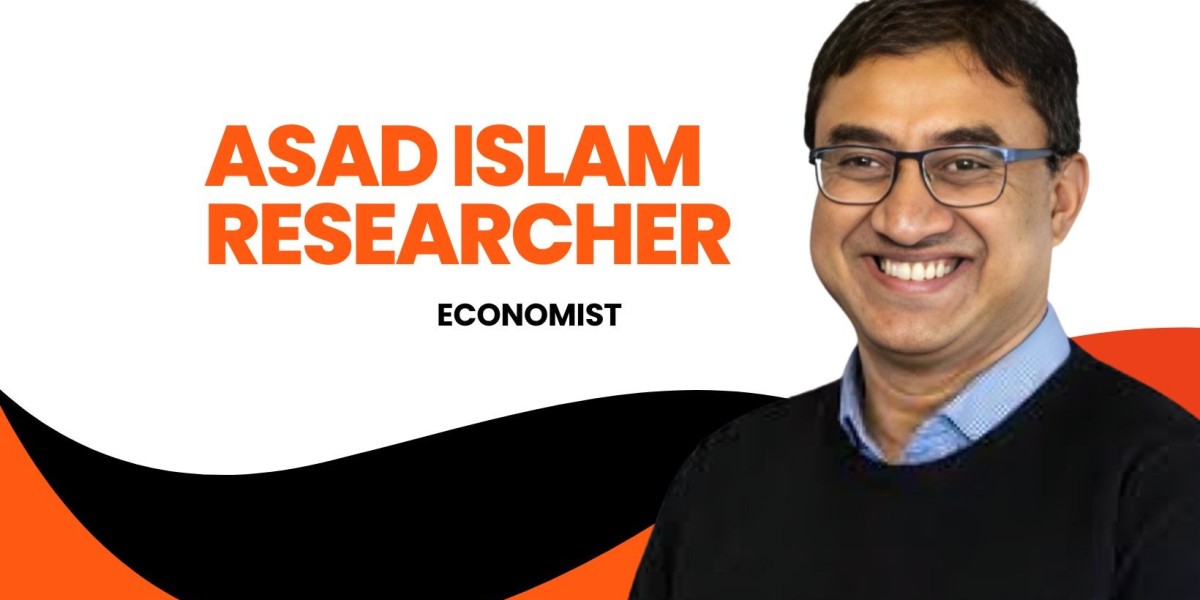How can rigorous academic research directly shape the lives of people living in poverty? For many policymakers and development practitioners, bridging the gap between research and practical implementation remains a persistent challenge. Asad Islam, a distinguished economist and researcher at Monash University, has dedicated his career to turning high-quality economic research into actionable solutions that influence policies worldwide (Monash University Profile).
The Foundation of Asad Islam’s Research
Asad Islam’s research is grounded in the principles of development economics. He focuses on identifying effective strategies to reduce poverty, improve education, and promote inclusive growth. His approach is characterized by a commitment to empirical rigor, ethical standards, and relevance to policy. As an Asad Islam Researcher, his work bridges the divide between theory and practice, ensuring that findings are actionable and scalable.
RCTs, central to Islam’s methodology, allow for causal inference by randomly assigning participants to treatment and control groups. This approach removes selection bias and provides credible evidence of an intervention’s effectiveness. It is this methodological precision that sets Islam apart as a leading Asad Islam Economist.
Translating RCTs into Policy Impact
RCTs are not just academic exercises; they have practical implications for society. Islam’s work has demonstrated how controlled experiments can guide large-scale policy decisions.
In education, for example, Islam has evaluated programs that enhance parental involvement and teacher accountability in schools. In rural Bangladesh, an RCT on parent-teacher engagement revealed that structured interactions significantly improved student learning outcomes and school attendance. This evidence has informed policies that prioritize community involvement in education (VoxDev).
In health, Islam’s studies have explored interventions in maternal and child health, sanitation, and preventive care. Through randomized trials, he has shown how community-based programs can increase adoption of healthy practices and reduce child mortality. These findings have helped shape national health initiatives and NGO programs aimed at improving public health (UNESCO Inclusive Policy Lab).
Case Studies Highlighting Societal Benefits
Education and Learning Outcomes
One of Islam’s significant contributions is evaluating educational interventions that target underperforming schools. His research demonstrates that low-cost interventions, such as structured parent engagement meetings and teacher training programs, can substantially enhance learning outcomes. The practical implication is clear: evidence-based adjustments in education policy can create a measurable difference in student success (Lens Monash).
Health and Nutrition Programs
In Bangladesh and Tanzania, Islam conducted RCTs to test the effectiveness of nutrition and hygiene programs. These trials provided concrete evidence that targeted education and resource provision significantly improve maternal and child health indicators. Policymakers have used these insights to implement community-based health campaigns, demonstrating the societal value of rigorous research (Economics Observatory).
Economic Empowerment Initiatives
Islam has also explored the impact of vocational training and microfinance on income generation. Through carefully designed RCTs, he identified which programs are most effective in enhancing employment outcomes, improving financial literacy, and fostering entrepreneurship. Such evidence has informed both national strategies and NGO programming, ensuring that resources are directed toward interventions with the highest impact (CEPR).
Key Principles of Asad Islam’s Approach
Several core principles guide Islam’s research and its translation into societal benefits:
Empirical Rigor: Every intervention is tested systematically to generate credible, replicable results.
Contextual Relevance: Programs are designed with local cultural, social, and economic realities in mind, ensuring applicability and sustainability.
Ethical Standards: Islam prioritizes participant well-being and ethical conduct, maintaining trust and integrity in his studies.
Policy Engagement: Research findings are communicated effectively to policymakers and practitioners, ensuring that evidence informs actionable strategies (Retraction Watch CV).
How Policymakers Can Leverage RCT Findings
For policymakers seeking to implement evidence-based programs, Islam’s work provides a roadmap:
Pilot Before Scaling: Small-scale RCTs allow policymakers to test interventions before nationwide implementation.
Measure What Matters: Focus on measurable outcomes, such as school attendance, test scores, or income changes, to ensure programs are effective.
Adapt Based on Evidence: Use trial results to refine and adjust programs, optimizing impact.
Collaborate Across Sectors: Partner with local governments, NGOs, and academic institutions to maximize reach and sustainability (Google Scholar Profile).
The Global Influence of Asad Islam’s Research
Beyond the field, Islam’s research informs international development practices. His studies have been referenced in policy reports by the World Bank, BRAC, and other development organizations. The real-world applications of his findings underscore the importance of linking academic research with societal outcomes (LinkedIn Profile).
Moreover, Islam contributes to building the next generation of researchers through mentorship and collaboration, emphasizing methodological rigor and ethical practice in economic research (Scholar Google).
Challenges and Insights
While RCTs are powerful, implementing them in diverse, resource-limited settings comes with challenges:
Logistical Complexity: Conducting large-scale trials in rural or remote areas requires careful planning and coordination.
Ethical Considerations: Ensuring interventions do not harm participants is paramount.
Data Management: Accurate collection, storage, and analysis are critical for reliable results.
Islam’s experience shows that these challenges can be addressed with rigorous design, local collaboration, and ethical oversight, setting a standard for applied research in development economics (ResearchGate Profile).
Conclusion
Asad Islam’s approach to economic research exemplifies how rigorous academic studies can generate real-world impact. Through methodologically sound RCTs, he has influenced education, health, and economic policy, providing actionable evidence to reduce poverty and promote social well-being. His work highlights the importance of translating lab-based insights into societal change, ensuring that research is both credible and impactful (Monash University Profile).
For students, policymakers, and practitioners alike, Islam’s research offers a blueprint for how evidence-based interventions can shape effective development strategies. His commitment to empirical rigor, ethical standards, and policy engagement demonstrates the transformative potential of combining research excellence with practical application. To explore more about Asad Islam’s contributions, view his detailed CV and extensive publications through his Google Scholar profile.








